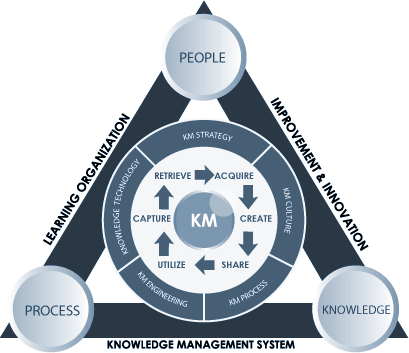Making
expertise plays an important part in the worth of business growth. Our
knowledge management system deals with essential concerns, maintaining your
service successful when dealing with the significantly routine adjustments of
business atmosphere. Logical DOC as a
document management system will
improve information retrieval in your organization by indexing and securing
needed content. This feature will help save valuable time when resource
searching and knowledge recreating. Using LogicalDOC will considerably
increase your new employees’ ability to be more productive as they will no
longer need to search through files on shared drives or in cabinets. Our program is about sharing and also keeping
the built-up cumulative proficiency, as well as comprehending the company's
strategies, procedures, and also procedures. It deals with understanding as a
crucial source and also essential consider intellectual funding and also
permits personnel professionals to affect individual’s administration.
What Is
Business Knowledge Management?
Knowledge management is the practice of cultivating,
sustainable, reliable, accurate information for the purpose of decision making,
prosperity and further cultivation.
Without proper cultivation of knowledge, knowledge is lost
either by time, bias, or poor organization. The purpose of a knowledge manager
is to cultivate knowledge within a confine safe nurtured ecology that prevents
decay and encourages growth.
Wait! Why
don't we know how long man has been on the Earth?
Because no one wrote it down. The knowledge of what man was
doing for more than 3/4 of his existence is literally lost. There was no form
of writing, no form of organization with meaning, there is some expression a
pictures on walls, but that is nearly worthless without some key to indicate
how to interpret the data.
Because of a lack of communication protocols and methods, our
understanding of early man begins with great civilizations that not only
developed means of recording data but the means of organizing and filtering
that data into information that could be expressed and interrupted by others
through systems of communication, such as hieroglyphs and alphabets.
One of the first great civilizations to take knowledge management system seriously was Egypt. It is one of the most recognizable
civilizations on earth spanning 3000 years; all of which were painstakingly
recorded by scribes, an honorable profession during that time. We know from
their records that they invented papyrus to record knowledge, invented an
alphabet to record knowledge and created books to record knowledge, they even
had a myth of a god who came to them taught them how to write for the purpose
of documenting knowledge, Thoth.
The Egyptians were some of the first knowledge managers. Not
only did they painstakingly record almost everything, they built entire
languages, protocols, and display methods beyond their alphabet as standards
for organizing their knowledge for proper deployment in the correct order, for
the correct occasion, to the correct people with the correct biases in check
for the audience and their comprehension.
You are probably wondering why I am talking about Egypt,
thinking that I am reaching for the connection, or maybe not. Maybe you realize
I am mentioning them because due to their diligence in knowledge management we
know more about their history and culture than probably 80% of all other human
cultures. Honestly, think about this for a moment: you probably know more about
Egypt's history and government than your own state's history or government.
Honestly, what do you know about the last CEO at your company, what were the
achievements, what systems and process were put into place and where do you
find how to do these processes?
Recently while sitting around in the open social area at my
office I heard two people from another department debating the sudden
technological advancement of mankind over the past fifty years. They were in
agreement that there "had to be outside influences on man," you know,
aliens. They agreed on this alien influence idea, but could not agree on the
history as to how aliens influenced humanities advancement. They used ancient
Egypt's advancement as their example of alien influence. You might be familiar
with the notion that no cultures of man at that time could have built the
pyramids. I couldn't help myself, I had to interrupt, being that I actually
find western alien mythos fascinating but I find the idea that aliens from Area
51 are the reason our culture has had recent advancements, "just like
Egypt," a fallacy.
"You're wrong and I think it's kind of insulting to
humanity and to those who invented the technologies that you won't credit them
for their work" I told them.
Honestly,
they got kind of annoyed, if not insulted, by my brash, tactless, remark and
asked me to explain why I was so passionate about my statement.





I read a weblog, I hope that it doesn't sadden me as much as this one. I’m talking about, I know it was my selection to read, but I actually thought you'd have something interesting to say. Great work admin..
ReplyDeleteDocument Management Software
Document Management System
Electronic Document Management Software
Best Document Management Software